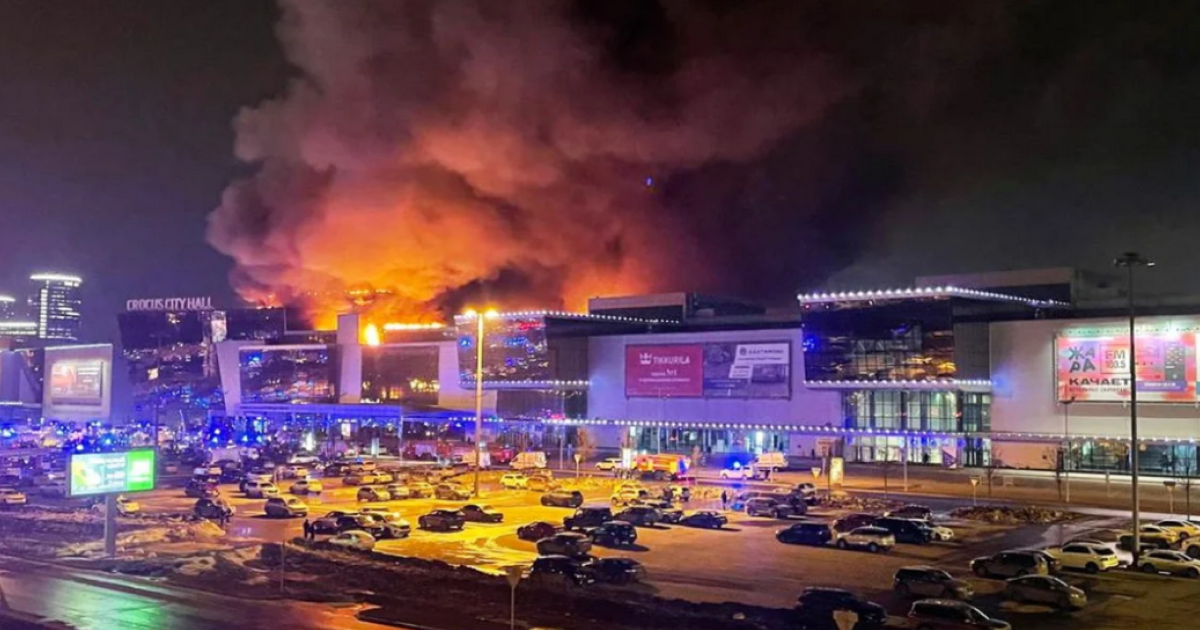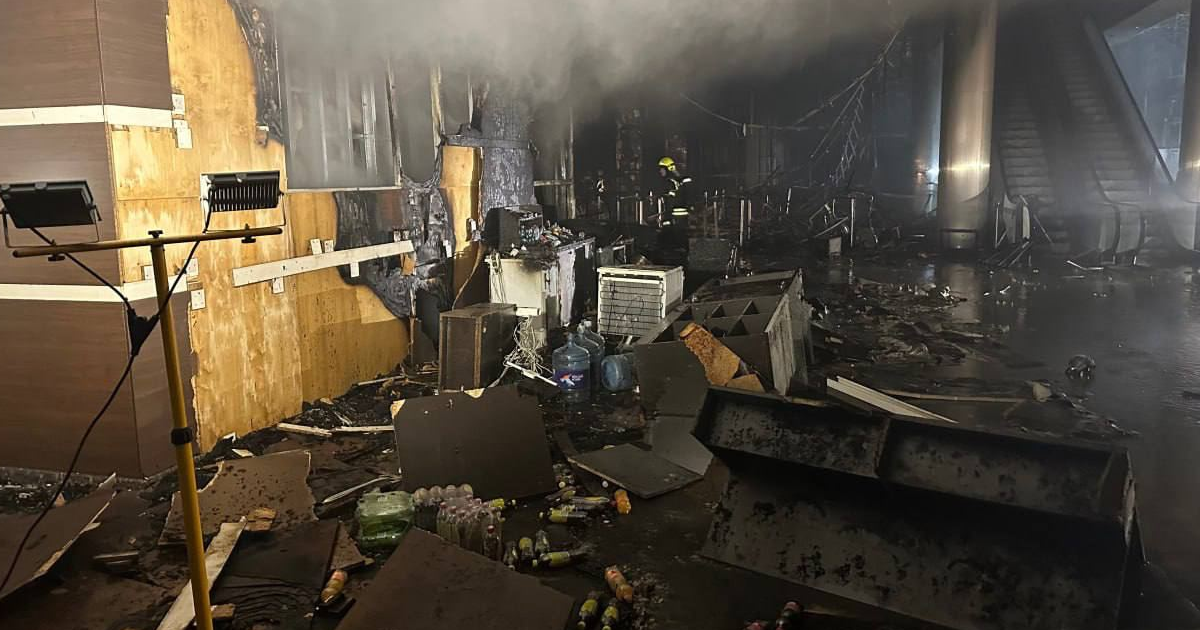Shooting in Crocus City Hall concert venue near Moscow, Russia, before rock band Piknik concert

Moscow, Russia (Svidomi) — A shooting unfolded in Krasnogorsk near Moscow, Russia, before a concert by the band Piknik at the Crocus City Hall concert hall. At least 93 people were killed and 121 wounded, according to the Russian Investigative Committee and the Ministry of Health.
On March 22, explosions occurred in Crocus City Hall and a fire broke out. The roof of the building was partially destroyed. Russian media report on four people in camouflage who opened fire in the concert hall. They also brought along a flammable substance, which they set on fire inside the building.
According to The Bell, there could have been up to 6,200 people in the hall. The RedKassa website states that all tickets were sold out.
Telegram channels 112, Baza, and Ostorozhno, Novosti report that a car that might have been carrying the suspects was shot at during the chase. Two of the men were detained immediately, while the other two fled. A pistol, a magazine for a machine gun and a passport of a citizen of Tajikistan were allegedly found in the car.
At the same time, the Ministry of Foreign Affairs of the Republic of Tajikistan stated that it had not received any official reports from Russia regarding the involvement of its citizens in the terrorist attack in the Moscow region.
Russian President Vladimir Putin has not yet made an official statement.
Although his address was announced on the night of March 23 by the RIA Novosti propaganda agency. Later, the announcement was called a "technical glitch".
In addition, the agency reported the detention of 11 people, including four suspects in the attack. Citing the Kremlin, the outlet has added that the security services are looking for accomplices.

The Russian telegram channel SHOT claims that one of the suspects is allegedly Muhammadsobir Faizov from Dushanbe, the capital of Tajikistan.
iStories media stated that Russian special services had allegedly ruled out the possibility of Ukraine or ISIS involvement in the attack. An alleged statement by ISIS claiming responsibility for the attack was posted online. However, the authenticity of the statement could not be confirmed, and the message was called fake.
The New York Times and CBS News, citing an unnamed US administration official, said that the US allegedly has intelligence confirming the Islamic State's responsibility.
John Kirby, Strategic Communications Coordinator of the US National Security Council, said that "the US had no advance knowledge of the terrorist attack in Moscow", as some media outlets claim.
At the same time, on March 7, the US Embassy in Russia warned its citizens to avoid crowds.
"The embassy is monitoring reports that extremists are planning to attack large gatherings in Moscow, including concerts, and U.S. citizens should avoid mass gatherings for the next 48 hours," the statement said.
Russian Security Council Deputy Dmitry Medvedev and member of the Russian Federation Council Viktor Boldyrev blamed Ukraine for the attack.
RIA Novosti, citing the FSS, reports that the suspects were allegedly going to cross the border into Ukraine after the shooting, where they had relevant contacts.
White House spokesperson Kirby said that "there is no indication at this time that Ukraine or Ukrainians were in any way connected to the shooting" in the Moscow region.
Ukraine's Foreign Ministry rejected the allegations and called them a "planned provocation" by the Putin administration.
"We consider such accusations to be a planned provocation by the Kremlin to further fuel anti-Ukrainian hysteria in Russian society, create conditions for increased mobilisation of Russian citizens to participate in the criminal aggression against our country and discredit Ukraine in the eyes of the international community," the Ukrainian ministry said in a statement.
Ukraine's Main Intelligence Directorate does not rule out the possibility that the attack may have been a provocation on the instructions of the Russian president.
"Putin has extensive experience in organising such attacks as a way to strengthen his power, starting with the bombing of houses on the Kashirskoye highway (the terrorist attack of September 13, 1999, in Moscow, which, according to the unofficial version, could have involved Russian special services and Putin). Just like then, today's action to intimidate Russians will be a pretext for maximum "tightening of the screws" on Russia itself," Ukrainian intelligence official Andrii Yusov said.


